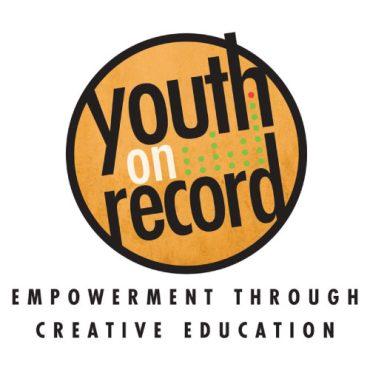The Foundations for Leaders Organizing for Water and Sustainability group, also known as FLOWS, is taking a multifaceted approach to addressing climate change, its impacts and causes. FLOWS isn’t just focused on environmentalism, but social justice as well. They don’t just meet and talk about climate related challenges. They take action, going out into the community and installing energy saving home upgrades as well as organizing hands-on conservation workshops. Yet another prong to FLOWS’ approach is involvement in local policy.
-
 play_arrow
play_arrow
FLOWS Proposes Social Equity Policy To Combat Climate Change KGNU News
In May of 2019, a group of FLOWS leaders and technicians sat in the front rows of the Boulder Council Chambers prepared and ready to speak.
Part of FLOWS’ mission is to draw attention to the link between social and environmental issues as well as the connection between a more equitable community and a healthier planet. On this occasion, the FLOWS team was scheduled to share their ideas for policy change that could benefit low income community members.

The presentation began with words from Climate Initiative staff member, Brett KenCairn. He helped fashion Boulder’s Climate Commitment which includes goals to power the city with 100 percent renewable electricity by 2030 and reduce Boulder’s greenhouse gas emissions by a minimum of 80 percent below 2005 levels by 2050. However, in late 2016, as work on the plan drew to a close KenCairn discovered the city’s Climate Commitment was incomplete.
“We thought we had really created a cutting-edge plan, got a lot of good feedback. But there were a few people that pointed out that we’d missed something. They said, this is a great plan but you’ve forgotten something. You’ve forgotten major parts of our community. What about equity and social justice? They have to be a part of the foundation of our plan,” said KenCairn.
A group of University of Colorado Boulder faculty, including FLOWS founder Michelle Gabrieloff-Parish, came together to form the Just Transition Collaborative or JTC, adding a fourth element to Boulder’s Climate Action Plan few climate plans around the country include; they added a section to integrate equity into Boulder’s work to transition to becoming a more sustainable city.
FLOWS is part of The Climate Justice Leaders group that’s playing a key role in helping Boulder meet the expectations laid out in that fourth section of the plan. FLOWS Coordinator and Community Engagement Manager for the Just Transition Collaborative, Magnolia Landa-Posas, was next to address the Council.
Keeping with FLOWS and the JTC’s desire to increase visibility of often overlooked low-income or non-white climate justice leaders, Landa-Posas asked the Climate Justice Leaders to join her as she stood at the front of the room.
Landas-Posas clarified why inclusion of underrepresented communities in sustainability efforts is both necessary and warranted saying, “The city knows in order to create change we need all hands on deck. I propose that if we are willing to work with those who have contributed the most to climate change and environmental injustice then we must and we should certainly be able and willing to work with those who have contributed the least to the degradation of our climate and who are impacted the most.”
Next, the time had come for FLOWS members to share their ideas for specific equity boosting policy changes.
Andrea Nawage, a Boulder resident, single mother of two children with special needs and FLOWS member spoke first. “My request is to develop programs which would recognize the experience, expertise and knowledge that we have to offer, would lower obstacles to our participation, would remember that in many ways because of our low carbon footprints we are already leaders in this community, would realize that my community is solution-oriented because of all we have survived before.”

FLOWS Coordinator, mother and CU student, Angela Maria Ortiz Roa spoke last. “As a low income resident of Boulder, I have witnessed the processes of obtaining transportation, housing and childcare and the requirement that they have of time, money and effort from us residents. These regulations make it so that each entry point is very repetitive. I propose that we make reforms that streamline the application process to meet and address all these needs at once. In order to do this the right way, it is important that the city continues to invest and enforce effective interpretation and translation for linguistic minorities, as well as training for staff around equity inclusion and cultural competency,” Maria Ortiz Roa said.
After finishing their speeches, FLOWS members gathered in the lobby reflected on the impact of their testimonies. Andrea Nawage said, “I don’t want to generalize because not all people of color suffer with this survival mode, but a lot of people of color and a lot of non people of color, also white people, have low-income and are also in survival mode and they are just not here. Why? Because they are either working or trying to figure out where they’re going to get their next meal. So, it’s very important for us to get that support. I’m really excited. I think it’s a great opportunity. [Council members] are open to come and work with us and are listening to our input and everything we have to say. I think that’s very very empowering and I’m looking forward to seeing that it’s not going to just say on paper and an idea and it’s going to take action in order for us to move forward.”

For FLOWS Coordinator Angela Maria Ortiz Roa, this was her first time speaking to city council. “I feel like the solutions need to be multi-dimensional because the problems are multi-dimensional. It’s not only at the community level, it’s not only at the policy level, It’s not only at the corporation level. So, I feel like in our approach to solutions we need to be as diverse of the problem is,” she said.
Before going their separate ways, members of FLOWS gathered up the Just Transition Collaborative buttons they wore at the meeting. On them was the word policy, shown as a cornerstone on a pyramid over the phase “Sustainability Rooted in Social Justice.”
FLOWS is currently accepting applications from Boulder residents with low/moderate incomes interested in becoming technicians for the program. Residents will receive green job skills training and a stipend for their participation. Find out more at colorado.edu/ecenter/FLOWS
This FLOWS radio series is made possible by a grant from Boulder County.
-
 play_arrow
play_arrow
FLOWS Proposes Social Equity Policy To Combat Climate Change KGNU News
Podcast: Play in new window | Download


















